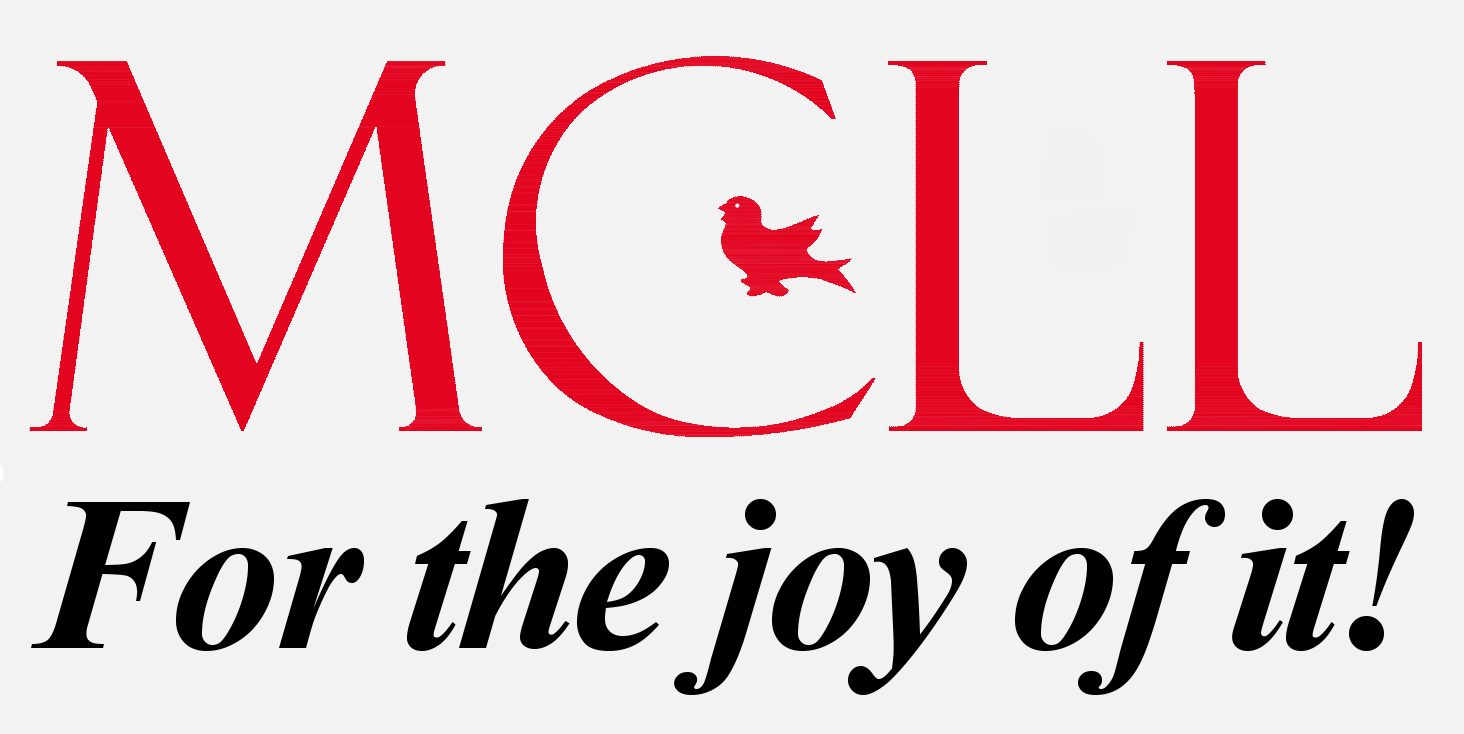Call for Proposals — Spring 2026 Term
The call for proposals for the Spring 2026 Term was open from 15 January to 5 February.
Proposal Forms
Spring 2026
The forms below are a preview of the full proposal forms. Click on the links to view them.
Proposal Form (preview) – Study Groups![]()
Proposal Form (preview) – Lectures, Workshops, Outings![]()
Call for Proposals
The Call for Proposals for the following term is sent by e-mail to the entire membership. Two forms are used year-round, one for study groups and the other for lectures, workshops and outings. One form submission is required for each offering.
Word format proposal forms are available by request. You may request a proposal form in Word by emailing proposalsmcll.scs [at] mcgill.ca.
Proposal Acceptance
Those who have submitted a proposal will receive an acknowledgement of receipt within 3 workdays; they should let the office know if they do not receive it. The Curriculum Committee considers each proposal and generally gives acceptance; it may suggest changes or, very occasionally, a delay for administrative reasons – i.e., to achieve a balance in study group offerings.
Writing Style
The person submitting a proposal chooses the title and writes out the description. Titles should be compelling and incisive. Texts may be edited; however only the author makes any major changes that may be required. The Style of the Study Group must be specified.
Proofreading
Proofreading and accuracy are the responsibility of the proposers. Those that have been accepted will receive the final version of the text, along with the proposed scheduling. They should let the office know by the specified deadline if they do not receive them or if changes are needed.
Cancellations
The Curriculum Committee is reluctant to cancel an event, except for health reasons or other emergencies. Study group moderators are asked to wait until after the first week of the term before cancelling due to shortage of applicants since many participants register late or decide on a change in that first week. If the number of participants is less than expected, the moderator has the option of shortening the duration of the study group or asking the participants for a greater commitment. Cancellations result in disappointed participants and are therefore to be avoided.
Role of Liaison
Moderators, lecturers, workshop leaders and outing coordinators are matched with assigned Curriculum Committee members who act as liaisons. Although the liaison will usually get in touch with the moderator, a moderator may write to mcll.scs [at] mcgill.ca to find out the name and coordinates of his/her liaison. ‘Liaison’ is a support role, to be exercised according to need. At one end of the spectrum, the liaison merely follows up on the Call for Proposals; at the other end, he/she may help in validating a concept, developing content, finding a co-moderator, using the classroom equipment, coping with difficult participants, relaying complaints to the Curriculum Committee or assisting in any other way.
